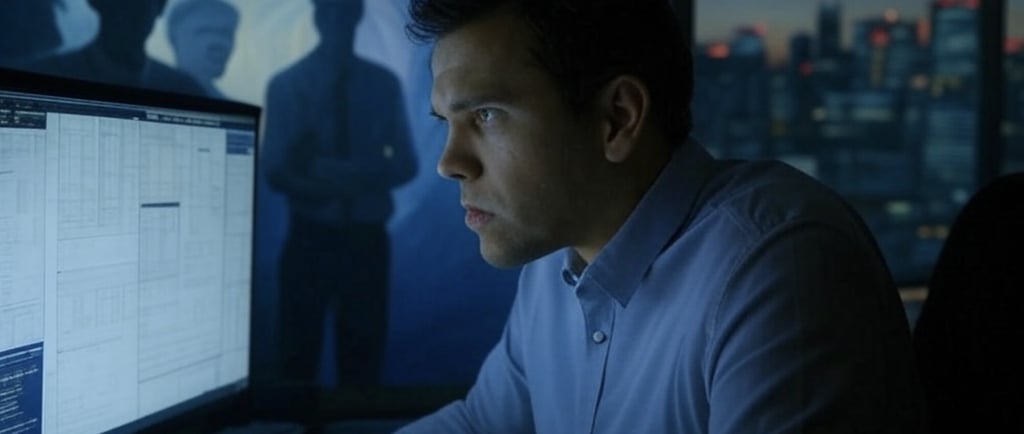The Emotional Crucible of Trading: Mastering the Mind After Mastering the Markets
X LINE TRADING
4/6/20253 min read


Trading is often sold as a path to financial freedom, a game of numbers and charts that anyone with enough grit can conquer. But those who’ve spent time in the trenches know the truth: the real battle begins not with technical knowledge but with emotional mastery. After two years of learning candlesticks, indicators, and risk management, traders often hit a wall—one built not of market complexity but of their own psyche. Emotional barriers, not technical gaps, are what separate consistent winners from the rest. Here’s why the mental game is the true crucible of trading success and how to navigate it.
The Two-Year Mark: Where Knowledge Meets Reality
For most traders, the first two years are a grind of education. You learn to read price action, backtest strategies, and calculate position sizes. You might even feel a rush of confidence after a few winning trades. But then the markets throw a curveball—maybe a string of losses or an unexpected gap—and suddenly, your carefully studied playbook feels inadequate. This isn’t because you lack knowledge; it’s because trading is only 20% technical and 80% psychological. The two-year mark is where you realize the game has shifted.
Why does this happen? Markets are a reflection of human behavior—chaotic, unpredictable, and emotionally charged. No amount of Fibonacci retracements or moving averages can shield you from the fear of losing capital or the temptation to chase a runaway trend. The emotional barriers—self-doubt, overconfidence, or revenge trading—start to loom larger than any chart pattern. It’s here that traders either break or evolve.
Highlight: Emotions Amplify Mistakes
The biggest emotional trap is letting feelings dictate decisions. A losing trade stings, so you double down to “make it back,” only to dig a deeper hole. A winning streak feels invincible, so you overleverage, ignoring risk management. These aren’t technical errors; they’re emotional ones. Studies suggest that traders who lack emotional discipline can lose 30-50% more capital than those who stick to a plan, even with similar strategies. The lesson? Your mind can be your worst enemy if left unchecked.
The Discipline of Detachment
So, how do you overcome these barriers? The first step is cultivating emotional detachment. This doesn’t mean becoming a robot—it means training yourself to see trades as data points, not personal victories or failures. One practical way is journaling every trade, not just the entry and exit but how you felt before, during, and after. Reviewing these entries can reveal patterns—like how fear of missing out (FOMO) leads to impulsive entries or how a loss triggers overtrading. Awareness is the foundation of change.
Meditation and mindfulness also help. Spending 10 minutes a day focusing on your breath can improve your ability to stay calm under pressure. Elite traders often borrow from sports psychology, using visualization to rehearse sticking to their plan even when markets get wild. Over time, these practices build a mental muscle that lets you act rationally, even when adrenaline screams otherwise.
Highlight: Consistency Beats Brilliance
Another key is embracing consistency over chasing brilliance. New traders often hunt for the “perfect” trade, but veterans know that small, disciplined wins compound over time. This means setting strict rules—say, never risking more than 1% of your account on a single trade—and following them religiously. It’s boring, but boredom is the price of longevity in trading. The emotional payoff comes not from a single home run but from knowing you can survive any market storm.
The Role of Patience and Perspective
Finally, patience is your greatest ally. Emotional barriers thrive on urgency—the need to recover losses now or prove yourself today. But markets don’t care about your timeline. Accepting that trading is a long game shifts your perspective. Losses become lessons, not failures. Wins become steps, not destinations. This mindset takes years to internalize, but it’s what separates those who quit from those who endure.
Highlight: Community and Accountability
Don’t go it alone. Engaging with a trading community—whether online forums or mentorship—provides perspective and accountability. Sharing your struggles with others who’ve been there can normalize the emotional rollercoaster and offer strategies to cope. Just beware of echo chambers hyping unrealistic gains; seek out those who value process over profits.
The True Edge in Trading
After two years of learning, the technical pieces might be in place, but the emotional game is where trading truly begins. It’s not about outsmarting the market—it’s about outsmarting yourself. By building detachment, embracing consistency, practicing patience, and leaning on community, you can turn emotional barriers into stepping stones. The markets will test your resolve, but mastering your mind is the edge that turns knowledge into success.
